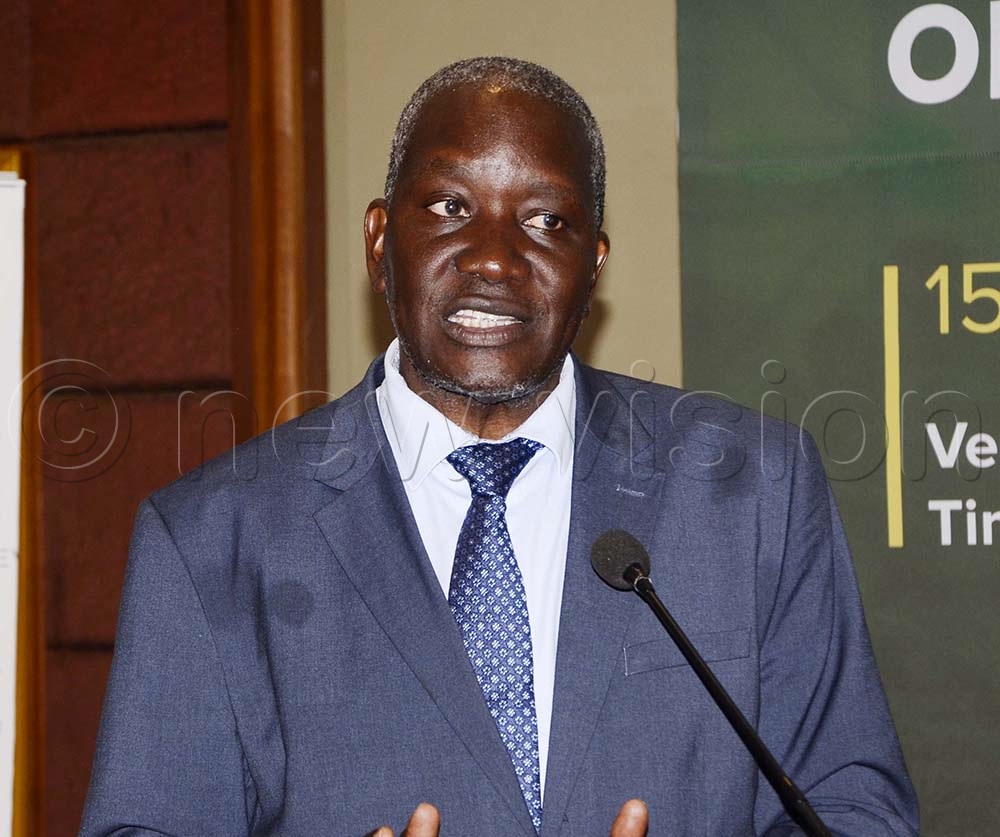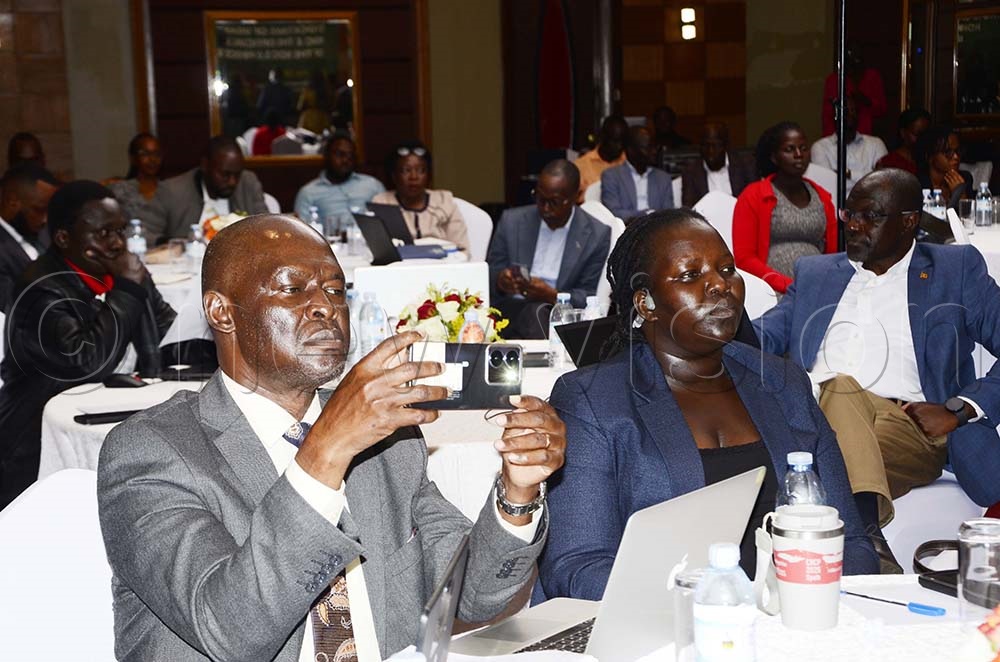Risks on the horizon as Uganda temperatures projected to rise by 0.3 degrees
“Public engagement is crucial for driving collective action and achieving meaningful change. NDCs are key to achieving the goals of the Paris Agreement, and collective action is essential for their success,” Mwebesa said.
Muhammad Semambo Kasagazi, water ministry Assistant Commissioner, Climate Change (Mitigation and Adaptation) addressing participants during the inception workshop for Uganda’s updated Nationally Determined Contributions stock take at Sheraton Hotel in Kampala on 15th July 2025. (Credit: Juliet Kasirye)
By Juliet Kasirye
Journalists @New Vision
KAMPALA - Uganda’s temperatures are projected to rise by 0.3 degrees due to climate change, according to environmental experts.
Although this increment may seem small, its implications for natural ecosystems, infrastructure, and human survival are significant.
Environment ministry assistant commissioner climate change (mitigation and adaptation) Muhammad Semambo Kasagazi says with Uganda's average temperature currently at 22 degrees, a 0.3 degrees increase can have far-reaching consequences, particularly in the agricultural sector, where impacts on food security can occur.
Besides food security, Kasagazi further states that this temperature rise may also lead to more extreme rainfall patterns, further straining infrastructure.
“Temperatures have been rising in Uganda and are projected to increase in various parts of the country. The central cattle corridor and Karamoja regions are expected to experience more pronounced temperature increases, although the western part of Uganda, which is typically cooler than other regions, will also be affected.”
Accordding to the commissioner, because of the temperature rising, rainfall is projected to decrease significantly in many parts of Uganda.
"The reduction in rainfall is projected to range from 10% to 15% depending on the specific area's current rainfall levels”.
Given the projected temperature changes, Kasagazi questions how ecosystems and people's livelihoods would be impacted by the changing temperatures and rainfall patterns.
He attributes these temperature increases to either natural causes or anthropogenic activities contributing to the greenhouse gases in the atmosphere. Adding that human activities contributing to these emissions include industrialisation, deforestation, wetland degradation, livestock farming, crop cultivation and transportation.
“If human activities are not sustainable, when these gases increase in the atmosphere, they create a blanket that alters the incoming solar radiation and outgoing solar radiation. This blanket absorbs the outgoing heat, warming the lower atmosphere and leading to a global temperature increase,” Kasagazi says.
He made the remarks during the inception workshop for Uganda’s updated Nationally Determined Contributions stocktake and the Launch of the NDC3.0 process held at the Sheraton Kampala Hotel on July 15, 2025.
Dr Alfred Okot Okidi, water ministry PS addressing participants during the inception workshop for Uganda’s updated Nationally Determined Contributions stock take at Sheraton Hotel in Kampala on 15th July 2025. (Credit: Juliet Kasirye)
Mitigation efforts
The NDC3.0 process intends to increase adaptation action and support, enhance mitigation efforts and scale up climate finance mobilisation considering the national circumstances through taking stock of collective progress in implementation of the updated NDC, identifying, appraising emerging issues and refining existing targets such as economy wide and sectoral targets for emission reductions, adaptation related targets, climate finance target among others.
NDCs are climate action plans submitted by each country detailing how they will reduce greenhouse gas emissions and adapt to the impacts of climate change.
Since NDCs are key to achieving the goals of the Paris Agreement, the national focal point for the United Nations Framework Convention on Climate Change (UNFCCC), in Uganda, Margaret Mwebesa, said in collaboration with the NDC partnership and support from development partners, the water ministry has embarked on the process to develop NDC 3.0.
“Public engagement is crucial for driving collective action and achieving meaningful change. NDCs are key to achieving the goals of the Paris Agreement, and collective action is essential for their success,” Mwebesa said.

Stakeholders during the inception workshop for Uganda’s updated Nationally Determined Contributions stock take at Sheraton Hotel in Kampala on 15th July 2025. (Credit: Juliet Kasirye)
AfDB support
Addressing stakeholders, water ministry permanent secretary Dr Alfred Okot Okidi commended the African Development Bank (AfDB) for responding to their request for technical assistance to track progress in implementing the updated NDC.
Okidi noted that AfDB is a key partner, supporting the government across various sectors, including water supply, climate change, and conservation.
Regarding the updated NDC implementation, Okidi said, “Government has made progress in mainstreaming climate change considerations in planning and budgeting, enhancing adaptation responses despite some challenges in fragmentation and unequal distribution across the country.”
The planning process from the Fourth National Development Plan (NDPIV), annual budgeting process, according to Okidi is subject to climate change compliance.
To develop NDC 3.0, Okidi explained that, with AfDB support, the ministry, in collaboration with the NDC partnership, has contracted HIT-GMP, a global consulting firm to take stock of Uganda’s NDC and inform the preparation of NDC 3.0
This assessment will involve conducting mitigation, adaptation assessments and generating evidence-based recommendations.
Okidi emphasised, “Our focus is on ensuring that we come up with an investment NDC that is implementable. With implementation being at the core, we will track progress across the country, focusing on adaptation, creation of green jobs, and securing the future of the next generation.”
Since the Government has come up with innovative financing strategies and these will certainly support the NDC process, Okidi implored the private sector to embrace their roles in the NDC process and also take advantage of the opportunities that are available in the climate change space.
He made the remarks while representing the state minister for Environment, Beatrice Anywar.
